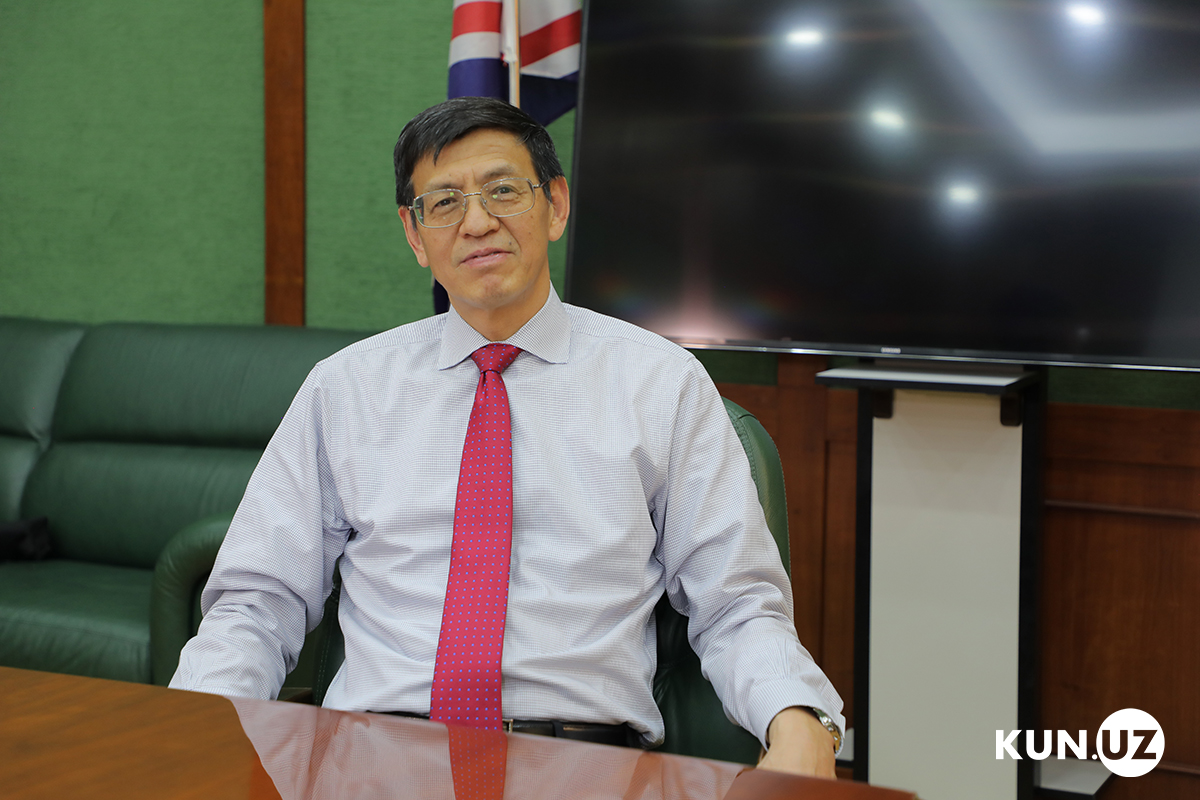IFPRI Director General: Most of the farming jobs in Uzbekistan are done by women and they are not paid well (video)

As per the 2019 Global Food Policy Report, published by the International Food Policy Research Institute (IFPRI), in order to meet growing demand for employment in rural areas and improve food security, Uzbekistan needs to strengthen the role of the private sector in its economy by accelerating reforms, improving institutional framework and exploring opportunities for regional integration in Central Asia.
Director General of the IFPRI Shenggen Fan, who visited Uzbekistan to observe recent transformations in the agricultural sector and support the government in working out the National Strategy for Agricultural Development, said during an interview with Kun.uz correspondent at the Westminster International University in Tashkent that the country needs to empower women and pay special attention to the education of youth in order to ensure sustainable development in rural areas.
In addition to reforms in the agrarian sector, the IFPRI head spoke about pros and cons of joining the WTO for Uzbekistan, benefits of moving to fruit and vegetable growing from cotton farming, food security issues in the country and cooperation of the organization with Uzbekistan.
Could you please tell, what is the role of the IFPRI in implementing the National Strategy for Agricultural Development?
Our job is to work with stakeholders: the government, civil societies, private sector and others. We support research projects, help the government to develop their own data so that they can monitor the implementation of the strategy over the long-run.
What countries’ experience can Uzbekistan take as an example to develop its own national strategy?
Every country is different, so there is no one perfect example that fits all cases. But I think that some of the experiences can be shared. Experience of Vietnam, China, Bangladesh or Brazil can serve as a good example, I think. For instance, Vietnam joined WTO a few years ago to boost its economy and I know that Uzbekistan is also contemplating joining the organization. In my opinion, joining the WTO will create a great opportunity for Uzbekistan to transform its economy, its agriculture and develop rural areas. But it should serve the interests of the population, most importantly.
You spoke about the benefits of joining the WTO. Could you please elaborate on the drawbacks as well?
Sure. Major drawback is that mainly large businesses enjoy benefits when a country joins the WTO and small enterprises usually are at a loss. Uzbekistan needs to work out a certain policy to make sure that small business holders can also join the process and gain as a result, for example, through contract farming.
In your opinion, how to keep the balance between the living standards of urban people and rural people?
Our goal is to build capacity here in the country. So that think-tanks, universities have their own sources of collecting and analyzing data, help the government develop the evidence-based strategy to achieve all the goals we have just discussed: reducing hunger, malnutrition and other food security issues.
Well, this is a challenge for many countries – big rural-urban gap. And I think that the number one cause is the policy failure. The policy has always been biased for urban areas against rural ones, so we must fix that in terms of pricing, in terms of investments and in terms of education. We must address this issue, so the bias policy is removed. Number two is to make sure that rural population have access to good jobs. This is one of the first pillars of the rural revitalization. We need to improve connectivity, develop roads and ensure high-speed internet connection. Besides, I would also say that women should be empowered. I have been to some rural areas and saw that most of the farming jobs are done by women and they are not paid well. Women in rural areas must be empowered, so that they have decision-making power in the household and also decision-making power in the village, in the community. That is very critical.
My last question is about IFPRI’s cooperation goals with Uzbekistan. What are the future of cooperation between Uzbekistan and your organization?
Our goal is to build capacity here in the country. So that think-tanks, universities have their own sources of collecting and analyzing data, help the government develop the evidence-based strategy to achieve all the goals we have just discussed: reducing hunger, malnutrition and other food security issues.




